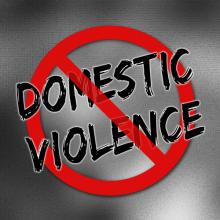domestic violence
Consider in the past year alone, America has wrestled over the injustice of forced vaginal probe ultrasounds. We have had our own deep cultural apathy revealed as the media tipped their sympathies toward the jocks that ripped a 16 year-old girl’s life and body through gang rape in Steubenville, Ohio – even as our nation gasped in horror at multiple reports of gang rapes of women in India. And over the past few weeks we have witnessed the unmasking of several U.S. military leaders, who were charged with duties to protect the women in their ranks, as they were revealed to be the very perpetrators themselves.
In Jim Wallis’ latest column, he writes, “It’s time for all people of faith to be outraged” and adds, “And it's time for us in the faith community to acknowledge our complicity in a culture that too often not only remains silent, but also can propagate a false theology of power and dominance.”
Will we do it? Will we take the step? Will we allow this holy wind that has blown the cover off of evil deeds done in the dark to rush through? Will we allow the cleansing waters of God to wash our society clean of practices — both private and public — that twist, maim and crush the image of God in more than half its population? Will we exercise the same courage that it took for those women at the first Pentecost to allow the spirit to move them into the public square and speak — testify, tell the truth, and prophesy? Will we repent from our silence?
Repentance begins in the heart. So, I must ask: “Will I repent of my silence — my safe silence?” Yes.
How do you love your neighbor when your neighbors sell drugs and exploit young women? I’m serious — this is a legitimate question that I am asking myself a lot lately and I am not sure I have the answer.
Nine years ago my wife and I moved into East Oakland to become a part of a small church community called New Hope and to direct InterVarsity’s Urban Project in the Bay Area. We’ve weathered some challenging experiences: stolen cars, physical assault, hearing a lot of shootings, witnessing a shooting, breaking up domestic violence, seeing a friend’s family torn apart by domestic violence, and endless amounts of trash on the streets. Don’t get me wrong, there is a lot to love about our neighborhood and community, but in recent months I think I’ve reached my limit.
The family that recently moved in across the street is friendly. The folks hanging out on the porch and the kids playing tetherball off the street sign honestly do contribute to the vibrant life of the block. But when I saw a total of 12 drug deals go down in broad daylight in the span of three days, loving my neighbor became a lot harder.
Violence against women is the most prevalent and the most hidden injustice in our world today. From rape as a weapon of war, to human trafficking, to the attack of a young girl seeking an education, the treatment of women and girls across the globe is in a state of crisis.
And we don't even need to leave our own shores to encounter staggering statistics. Here in the U.S., 1 in 5 women have been raped in their lifetime — a number that only jumps when you realize that 54 percent of sexual assaults are never reported. More than 1 in 3 women have experienced some kind of intimate partner violence. Sexual assaults in the U.S. military continue to rise — with an estimated 26,000 in 2012 alone — even as its leaders claim to be addressing the epidemic.
As I lay out in my book On God’s Side, what has been missing from this narrative is the condemnation of these behaviors from other men, especially men in positions of power, authority, and influence — like those in our pulpits. In a section of that book, I say we need to establish a firm principle: the abuse of women by men will no longer be tolerated by other men. The voices of more men need to join the chorus to make that perfectly clear.
It's time for all people of faith to be outraged.
Who is missing from the slew of headlines this week on kidnappings, gender-based violence, and victims' paths to healing? The perpetrators themselves.
Which is why this TEDx video is a must-see.
“Gender violence issues have been seen as 'women’s issues' that some good men help out with,” Jackson Katz, PhD, Founder and Director at MVP Strategies, says in the video. “I have a problem with that frame, and I don’t accept it. It gives men an excuse to not pay attention."
Due to sequestration, programs that fight domestic violence and sexual assault will lose 20 million dollars in funding this year. Congress has voted to restore funding to tuition aid for service members and the Federal Aviation Administration but not the Violence Against Women Act. It is estimated 70,120 fewer domestic violence victims will have access to recovery programs and shelters and 35,900 fewer people will get help obtaining non-shelter services such as restraining orders and sexual assault treatment. Mother Jones reports:
"The tower is understaffed and the rescue plane can't land," says Kim Gandy, president and CEO National Network to End Domestic Violence. "We're talking about really vital services to people who are already in a terrible situation and really in need of emergency services—and there aren't alternatives."
Read more here.
A caller into a Christian radio station was telling the hosts about some of the strains in her marriage. Soon, she was talking about the physical abuse she was receiving from her husband.
And the response of the hosts of this Christian radio show? “What are you doing that is making him so mad?”
There’s a sad history in too many Christian churches of pastors telling abused wives that their duty is, as one author noted, “to trust that God would honor her action by either stopping the abuse or giving her the strength to endure it.”
I don’t think that view is as common in churches as it once was. And in many churches pastors and other faith leaders will act thoughtfully and quickly to come to the aid of a victim of abuse. But the undercurrent of tolerating abuse lingers.
A renowned theology professor from the Southern Baptist Theological Seminary, Bruce Ware, preached a few years ago that when women refuse to submit to their husbands, men will sometimes respond with abuse. He did not condone that, but he seemed to accept it as inevitable.
Good news: the Violence Against Women Act passed the Senate this afternoon. While the bill still must proceed to the House of Representatives, this is a promising step for women across the country.
VAWA provides much-needed services and protections for women, which should not be a controversial issue. However, the bill expired in 2011 and has yet to be reauthorized, with most of the delay coming from a debate over whether the protections can extend to Native American women living on reservations.
A recent story shows the importance of extending these protections to Native woman: the woman profiled was attacked by her (white) husband, but neither the tribal court nor the local police felt they had proper authority to protect her.
This is not an isolated incident: during the Senate hearing on the bill, Sen. Maria Cantwell (D - Wash.) pointed out that Native American women are raped and assaulted at 2.5 times the national rate, and fewer than 50 percent of domestic violence cases on reservations are prosecuted.
Everyone in the political sphere, on cable television, and most certainly in Washington, D.C., has only one thing on the mind pre-Christmas, and it isn’t the fat guy in the red suit (and/or Jesus). It’s the fiscal cliff.
And while it’s an incredibly important — and incredibly complex — debate, it’s not the only one worth having right now.
There’s this other thing — this thing that has been happening on a bipartisan basis for eighteen years — that is sitting in the House of Representatives right now while our national confidence in Congress sits at about 6 percent, and our senators are filibustering their own bills. It’s the Violence Against Women Act. This seemingly procedural piece of legislation — which usually is reauthorized without question whenever it comes up — is in danger of expiring if the House doesn’t act before the end of session.
“This should not be controversial. This is something that should be capable of passing on a voice vote,” Sen. Claire McCaskill (D – Mo.) said on Wednesday at a panel discussion on the women’s vote.
The House of Representatives passed on Wednesday a version of the Violence Against Women Act that would limit protections to immigrant, LGBT and American Indian abuse  victims. House Republicans argue that Democrats are politicizing a non-issue, but stating fact is not partisan politics.
victims. House Republicans argue that Democrats are politicizing a non-issue, but stating fact is not partisan politics.
The new version of the bill not only deletes new protections that received bipartisan support in the Senate, but also eliminates ones that existed in previous versions of the Act. For instance, the new version could make it more difficult for immigrants married to abusive U.S. citizens come forward for fear of losing their residency.
Some victims, it seems, are more worthy than other victims. This is the clear message sent by a deeply flawed version of the Violence Against Women Act that is headed for a vote in the U.S. House of Representatives.
But our faith dictates that such a dichotomy—worthy and unworthy—cannot be allowed.
 VAWA, as the act has been known since it was first passed in 1994, represents years of progress and bipartisan commitment on the part of Congress to protect victims of violence. But the version up for reauthorization in the House of Representatives, H.R. 4970, would roll back VAWA’s existing protections for battered immigrants leaving them more vulnerable —and in some cases, endangering their lives.
VAWA, as the act has been known since it was first passed in 1994, represents years of progress and bipartisan commitment on the part of Congress to protect victims of violence. But the version up for reauthorization in the House of Representatives, H.R. 4970, would roll back VAWA’s existing protections for battered immigrants leaving them more vulnerable —and in some cases, endangering their lives.
Whenever there’s talk about honoring mothers and motherhood, I’m always looking for how we as individuals and a society will support the women—of any race, creed, or orientation--who have to scoop up their children and run for their lives or who feel forced to decide between enduring emotional and physical abuse and feeding their children.
The Violence Against Women Act (VAWA) has been one way that our country has acknowledged and worked to stop the abuse that occurs every day. As Lisa Sharon Harper wrote on this blog last week, the House of Representative’s version of VAWA would exclude certain groups from its protections.

When we look deeply into our mothers’ eyes we see the beauty and power of grace; their grace offered to us and our grace offered to them.
And so their abuse is unthinkable …and the thought that their abuse would be deemed unworthy of protection by the state—for any reason—is unconscionable.
Why, then, is the House GOP insisting on a scaled down version of the bill to reauthorize the Violence Against Women Act that the Senate reauthorized with bipartisan support in April? Because they have decided certain women are worth protecting and others are not.










